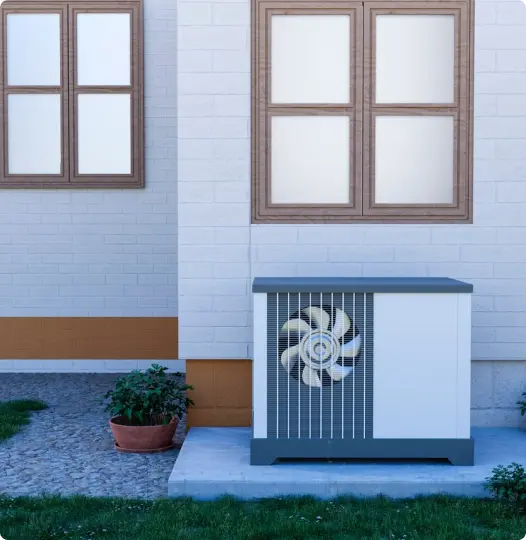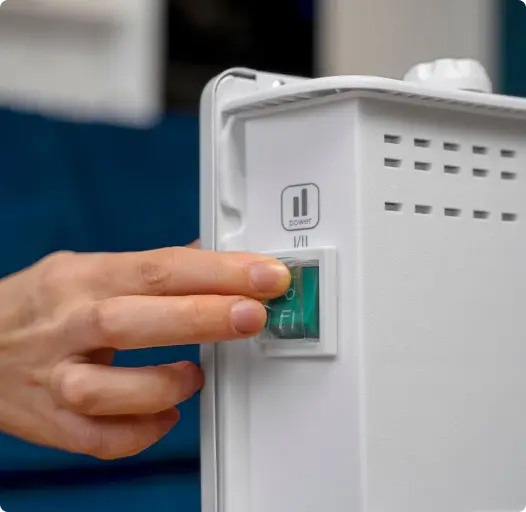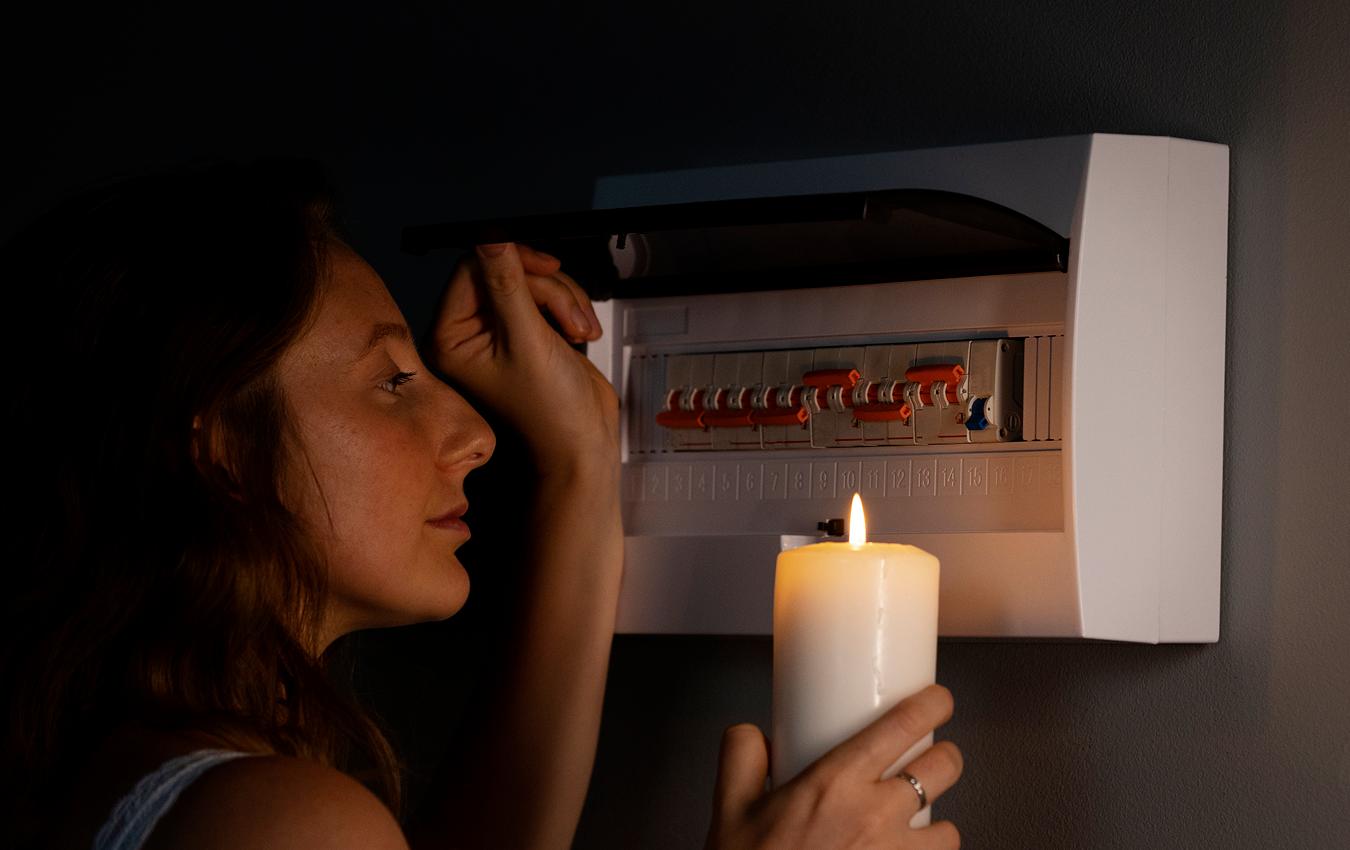Why Does Your Home Need a Generator?
This question shouldn’t even be asked if you live in Florida. With the number and intensity of power outages, a generator is not a luxury, it is a necessity. But there are other reasons to have trusted professionals install a generator for your home.
- You’ll be able to have a comfortable life throughout a power outage. And sometimes those can last for days!
- Your food will not go bad. You won’t have to worry about providing enough food for your family during a weather disaster.
- Crucial household systems like fridges and septic systems will keep running like nothing happened.
- If you work from home, a generator will let you continue working without any problems.
- If you are using sump pumps, they will stay on, avoiding flood damage.
Simply put, a generator will provide you and your family with peace of mind, avoiding home damage and other possible hazards.


How Do Generators Work?
So, what exactly happens when you get your generator installed?
A generator can immediately sense the power outage and kick off working. Then it starts supporting just a few essential appliances, for example lamps, TV, phone charges, and fridge, or the entire house – all depending on your initial installation request.
Essentially, a standby generator can keep the following components working:
- Lights
- Heating and Cooling Systems
- Refrigerators and Freezers
- Security Systems
- Sump Pumps
- Computers
- Entertainment Systems
- Hot Water Heaters
Understanding Standby Generator Installation Costs
The cost of installing a standby generator in Broward County varies depending on several factors.
Generator Size and Power Output
The size and power output of the generator directly impacts the cost. Larger generators capable of powering your entire home will be more expensive than those designed for essential appliances. Determine your power needs by considering the appliances and electronics you want to run during an outage.
Fuel Source
LP generators generally involve additional costs for the propane tank and installation. Natural gas generators might be more cost-effective if your home already has a gas line connection. Factor in the long-term fuel costs associated with each option as well.
Installation Complexity
The complexity of the installation process can influence the cost. Factors like ease of access, required trenching for fuel lines, and the need for additional electrical work can add to the final price tag.
Permits and Inspections
Obtaining necessary permits and scheduling inspections add to the overall cost.
Here’s a rough estimate for standby generator installation costs:
- Small Standby Generators (5kW-7kW): $3,500 – $6,000 (suitable for powering essential appliances)
- Medium Standby Generators (10kW-15kW): $6,000 – $10,000 (suitable for powering most household needs)
- Large Standby Generators (20kW and above): $10,000+ (suitable for powering large homes or specific high-wattage appliances)

Standby Generators
These permanently installed units offer a seamless transition to backup power during an outage. See what makes them a popular choice for Broward County residents.
Automatic Operation
Peace of mind is a key benefit. Standby generators are equipped with an automatic transfer switch (ATS). When the utility power goes out, the ATS detects the outage and automatically starts the generator, typically within seconds. Once utility power is restored, the ATS seamlessly switches back. This “set it and forget it” approach is ideal for storms or situations where you’re away from home.
Fuel Options
Standby generators offer flexibility in fuel sources, including liquid propane (LP), which is a clean-burning and readily available option. LP tanks are typically installed outside the house and connected to the generator. They can also use natural gas. If your home has a natural gas line, a natural gas standby generator offers a convenient fuel source. However, installation may require additional permits and connections.
Safety
Unlike portable generators, which can pose a risk of carbon monoxide poisoning if not used outdoors, standby generators are permanently installed outside and adhere to stricter safety standards. This includes features like automatic shut-off if carbon monoxide is detected, offering an extra layer of protection for your home and family.
Long-Term Power
In contrast to portable generators with limited runtime, standby generators are built for extended use. During a lengthy power outage, they can provide reliable backup power for your Broward County home, keeping your essential appliances running for days or even weeks on end.

Portable Generators
Portable generators are a handy option for temporary backup power. While they can’t keep your entire house running indefinitely, they offer some advantages for specific situations.
Portability
Portable generators, as the name suggests, offer greater flexibility. They can be used at home during an outage or taken on camping trips or job sites.
Fuel Options
Portable generators typically run on gasoline, offering readily available fuel but with safety concerns.
Limited Power
Portable generators have lower power output compared to standby generators. They might not be able to power your entire house, requiring prioritization of essential appliances during a Broward County outage.
Manual Operation
Portable generators require manual startup and connection, which can be inconvenient and even dangerous during storms or at night.
Safety Concerns
Portable generators emit carbon monoxide (CO), a colorless and odorless gas that can be deadly. They must be operated outdoors with proper ventilation to avoid CO poisoning, especially in areas of Broward County where homes may have limited outdoor space.





